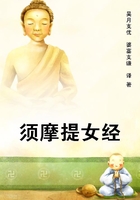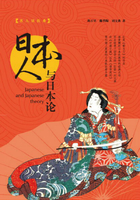On one of his Majesty's earliest visits he had a chance of displaying the penetration of which he was so proud. James was always finding out something or somebody, till it almost seemed as if people had discovered that the best way to flatter him was to try to deceive him. In 1604, there was in Oxford a certain Richard Haydock, a Bachelor of Physic. This Haydock practised his profession during the day like other mortals, but varied from the kindly race of men by a pestilent habit of preaching all night. It was Haydock's contention that he preached unconsciously in his sleep, when he would give out a text with the greatest gravity, and declare such sacred matters as were revealed to him in slumber, "his preaching coming by revelation." Though people went to hear Haydock, they were chiefly influenced by curiosity. "His auditory were willing to silence him by pulling, haling, and pinching him, yet would he pertinaciously persist to the end, and sleep still." The King was introduced into Haydock's bedroom, heard him declaim, and next day cross-examined him in private. Awed by the royal acuteness, Haydock confessed that he was a humbug, and that he had taken to preaching all night by way of getting a little notoriety, and because he felt himself to be "a buried man in the University."
That a man should hope to get reputation by preaching all night is itself a proof that the University, under James, was too theologically minded. When has it been otherwise? The religious strife of the reigns of Henry VIII., Edward VI., and Mary, was not asleep; the troubles of Charles's time were beginning to stir.
Oxford was as usual an epitome of English opinion. We see the struggle of the wildest Puritanism, of Arminianism, of Pelagianism, of a dozen "isms," which are dead enough, but have left their pestilent progeny to disturb a place of religion, learning, and amusement. By whatever names the different sects were called, men's ideas and tendencies were divided into two easily recognisable classes. Calvinism and Puritanism on one side, with the Puritanic haters of letters and art, were opposed to Catholicism in germ, to literature, and mundane studies. How difficult it is to take a side in this battle, where both parties had one foot on firm ground, the other in chaos, where freedom, or what was to become freedom of thought, was allied with narrow bigotry, where learning was chained to superstition!
As early as 1606, Mr. William Laud, B.D., of St. John's College, began to disturb the University. The young man preached a sermon which was thought to look Romewards. Laud became SUSPECT, it was thought a "scandalous" thing to give him the usual courteous greetings in the street or in the college quadrangle. From this time the history of Oxford, for forty years, is mixed up with the history of Laud. The divisions of Roundhead and of Cavalier have begun. The majority of the undergraduates are on the side of Laud; and the Court, the citizens, and many of the elder members of the University, are with the Puritans.
The Court and the King, we have said, were fond of being entertained in the college halls. James went from libraries to academic disputations, thence to dinner, and from dinner to look on at comedies played by the students. The Cambridge men did not care to see so much royal favour bestowed on Oxford. When James visited the University in 1641, a Cambridge wit produced a remarkable epigram.
For some mysterious reason the playful fancies of the sister University have never been greatly admired at Oxford, where the brisk air, men flatter themselves, breeds nimbler humours. Here is part of the Cantab's epigram:
"To Oxenford the King has gone, With all his mighty peers, That hath in peace maintained us, These five or six long years."
The poem maunders on for half a dozen lines, and "loses itself in the sands," like the River Rhine, without coming to any particular point or conclusion. How much more lively is the Oxford couplet on the King, who, being bored by some amateur theatricals, twice or thrice made as if he would leave the hall, where men failed dismally to entertain him.
"The King himself did offer,"--"What, I pray?"
"He offered twice or thrice--to go away!"
As a result of the example of the Court, the students began to wear love-locks. In Elizabeth's time, when men wore their hair "no longer than their ears," long locks had been a mark, says Wood, of "swaggerers." Drinking and gambling were now very fashionable, undergraduates were whipped for wearing boots, while "Puritans were many and troublesome," and Laud publicly declared (1614) that "Presbyterians were as bad as Papists." Did Laud, after all, think Papists so very bad? In 1617 he was President of his college, St.
John's, on which he set his mark. It is to Laud and to Inigo Jones that Oxford owes the beautiful garden-front, perhaps the most lovely thing in Oxford. From the gardens--where for so many summers the beauty of England has rested in the shadow of the chestnut-trees, amid the music of the chimes, and in air heavy with the scent of the acacia flowers--from the gardens, Laud's building looks rather like a country-house than a college.
If St. John's men have lived in the University too much as if it were a large country-house, if they have imitated rather the Toryism than the learning of their great Archbishop, the blame is partly Laud's.















